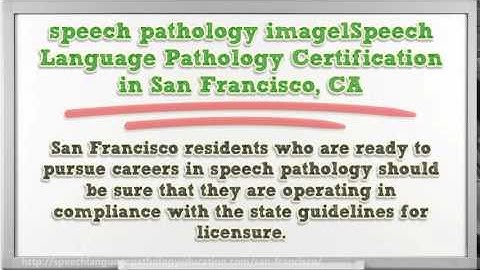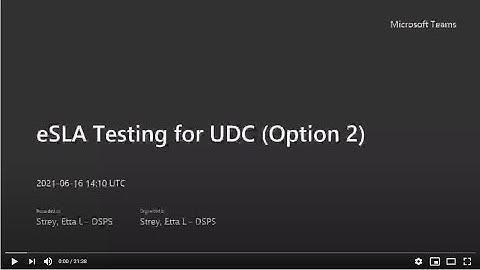Common questions Golden State Stimulus 2 questions including "when will I get it" answered. Show
SACRAMENTO COUNTY, Calif. — On July 12, California Gov. Gavin Newsom signed budget bills totaling $100 billion, which includes the second Golden State Stimulus economic relief program to help ease the burden exacerbated by the coronavirus pandemic. Here are some common questions received by viewers that were sent into ABC10. TOP 5 QUESTIONS:1) When will the funds be dispersed and how? ANSWER: The California Franchise Tax Board says the Golden State Stimulus II checks will start going out in September 2021. It will be dispersed by either direct deposit or check. 2) What about seniors on social security? ANSWER: Andy Imparato, the Executive Director of Disability Rights California told ABC10 the state decided that the Golden State Stimulus will go to people on Supplemental Security Income (SSI), but it wouldn't go to people on SSDI. 3) How about married couples with an income of 100,000? ANSWER: The stimulus payment is issued per tax return, not by household/residence. According to the California Franchise Tax Board individuals in the same residence could receive a stimulus payment (as long as they both qualify). You may receive this payment if you make $75,000 or less and file your 2020 tax return. 4) Do I qualify for the Golden State Stimulus? ANSWER: According to the California Franchise Tax Board, to meet qualifications, you can receive this payment if you make $75,000 or less and file your 2020 tax return. 5) What else was included in Newsom's budget deal along with the second Golden State Stimulus? ANSWER: In addition to the $600 stimulus payments being sent out to those making between $30,000 and $75,000, it also sends $500 to families with children and $1,000 to undocumented families with children, who were left out of federal stimulus payments in the past. This is an archived article and the information in the article may be outdated. Please look at the time stamp on the story to see when it was last updated. It’s been nearly two months since California began issuing Golden State Stimulus II payments of up to $1,100 for eligible residents. While millions have already received the money, many Californians still have not been issued a payment. As the state continues to roll out stimulus checks in the coming months, here are some possible reasons for delayed payments and why you might not have gotten one yet: You may not qualifyThe big reason why some haven’t received a payment yet — and likely won’t in the future — is that they simply don’t qualify. Eligibility requirements are as follows: you must have been a California resident for most of last year and still live in the state; filed a 2020 tax return by Oct. 15, 2021; earned less than $75,000 (adjusted gross income and wages) last year; have a Social Security Number (SSN) or an or an Individual Taxpayer Identification Number (ITIN), and can’t be claimed by another taxpayer as a dependent. California’s set of qualifications for its stimulus program are different than the federal government’s, meaning quite a few taxpayers who received the three COVID-19 relief payments from the U.S. will be excluded from the state’s program. For instance, because of the income tax requirement, Californians who typically don’t file returns are essentially excluded from Golden State Stimulus. And, unlike the federal government’s program, California doesn’t have a sign-up tool that allows non-filers to bypass that requirement. Another key difference is that California has no higher income threshold for the various taxpayer filing classes. That means all statuses — even married couples filing jointly and those who file as heads of household — are restricted to the $75,000 limit as well. (Not sure if you qualify? California’s online tool allows residents to see if they are eligible and, if they are, provides an estimated payment amount.) You receive your CA tax refund by mailCalifornia began issuing batches of stimulus payments by direct deposit back in late August but only started sending paper checks out by mail earlier this month. As a result, those who typically get their state refund through the mail should expect a delay — possibly even through the new year. Additionally, where you live can also affect when you get the payment, as mailing times are based on the taxpayer’s last three digits of their ZIP code. The Franchise Tax Board provided the following timeline of when it expects mailed payments to go out: Last 3 digits of ZIP code/mailing time frame
Your 2020 tax return hasn’t been processed yetEligible individuals who submitted their 2020 taxes on time but whose returns have not yet been processed by the state yet should expect a delay in their payment, according to the Franchise Tax Board. Taxpayers who filed after Sept. 1 and typically get their refund via direct deposit likely won’t get the payment until up to 45 days after their return has been processed. For those anticipating a payment by mail, expect a longer delay — up to two months — if the return hasn’t been processed prior to their ZIP code’s scheduled payment date. On top of that, “Some payments may need extra time to process for accuracy and completeness,” the state notes. Your personal information is out of dateIndividuals may see their payment delayed if they’ve moved or changed their bank account information, and haven’t yet updated it with the state yet. Taxpayers who have moved since filing their 2020 returns are urged to contact the Franchise Tax Board to update their address. You receive Social Security or other benefits but no extra incomePeople who receive Social Security, CalWorks and CalFresh benefits, Supplemental Security Income/State Supplementary Payment/and Cash Assistance Program for Immigrants, State Disability Insurance and VA disability benefits, or unemployment income generally do not qualify for a GSS II payment if those benefits are their only income source, according to the state, noting that those forms are not included in AGI. However, if the recipient has other sources that do count as adjusted gross income, they may qualify to receive a stimulus check. (See what’s included and what’s excluded from AGI here.) You requested an ITIN but haven’t received one yetCalifornians who applied for an Individual Taxpayer Identification Number by Oct. 15 but didn’t get one yet will have an additional four months to file their tax returns and still be considered for a GSS II payment, as well as the Golden State Stimulus I program from earlier this year. The deadline to file a 2020 return for these individuals is Feb. 15, 2022, according to the state. More information on Golden State Stimulus payments can be found here. Are married couples eligible for the Golden State stimulus?The payments are gradually phased out for those with up to $500,000 in income, for married couples, and $250,000, for individuals. California residents with incomes above those thresholds will not receive a stimulus payment.
Who qualifies for California stimulus checks married filing jointly?Single taxpayers who earned less than $75,000 and couples who filed jointly and made less than $150,000 will receive $350 per taxpayer and another flat $350 if they have any dependents. A married couple with children, therefore, could receive as much as $1,050.
How much can a married couple make in California stimulus?The new scheme will benefit people who are struggling to make ends meet. Single filers who make less than 75,000 dollars per year and couples who earn less than 150,000 dollars per year are set to receive 350 dollars per taxpayer, as well as an extra 350 dollars in the event they have at least one dependent.
What is the income limit for the second stimulus check for married couples?There is no minimum income needed to qualify for the payment. Households with adjusted gross income (AGI) up to $75,000 for individuals (up to $150,000 if married filing jointly and up to $112,500 if head of household) will receive the full payment.
|

Related Posts
Advertising
LATEST NEWS
Advertising
Populer
Advertising
About

Copyright © 2024 chuyencu Inc.


















